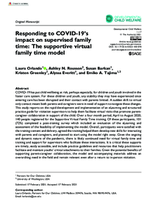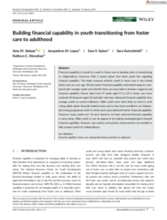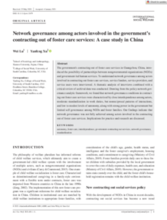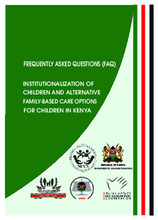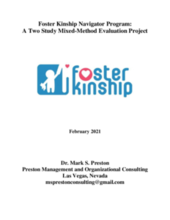Displaying 201 - 210 of 2221
This article explores evidence which shows that the use of ‘private family arrangements’ is motivated partly by a concern for subsidiarity, and partly by necessity: they provide a source of placements in cases where regulatory requirements and a lack of resources would otherwise make the placement challenging or impossible.
The current study aimed to identify the critical components of an efficacious dyadic relationship enhancement intervention for siblings in foster care through a secondary analysis of fidelity of implementation and trial outcome data.
The current study aimed to identify the critical components of an efficacious dyadic relationship enhancement intervention for siblings in foster care through a secondary analysis of fidelity of implementation and trial outcome data.
This study reports on the rapid development and implementation of an eLearning and structured practice guide for visitation supervisors to help them facilitate virtual visits that promote parent-caregiver collaboration in support of the child.
This study assesses whether youth in foster care in the United States who are over age 18 have better financial capability and related supports compared with younger youth and whether there are associations between supports and financial capability.
To understand network governance among actors involved in contracting out foster care services, service funders, service providers, and service users were interviewed. A thematic analysis of interviews combined with a critical review of archival data was conducted.
This research explored the experiences of the postmarital life of women with a history of residence in foster care centers. It was conducted using a qualitative content analysis.
This systematic narrative review of the literature reports on the experiences of foster youth regarding the use of Internet Communication Technologies (ICTs) such as social media, focusing only on studies that include youth voice.
This booklet emphasizes the importance of family based care for the care of orphaned and vulnerable children (OVC) in Kenya, provides answers to regularly asked questions, and lists current government efforts to support OVC, including the policy and legal frameworks and existing forms of family and community-based care.
This qualitative evaluation was to determine the level of fidelity of Clark County Nevada’s Foster Kinship navigator program to its navigator program manual and to ascertain if Foster Kinship’s navigator program for formal kinship families met the minimum standard for promising practice.

